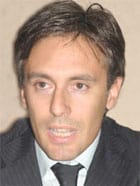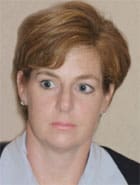Global Finance brought together some of the worlds leading custody experts to discuss the industrys prospects.
GLOBAL FINANCE: Welcome. Please tell us a little about your organizations.
 |
|
Global Finance publisher Joseph Giarraputo: Does technology continue to drive change in custody? |
MARY BAKER BALADY,
senior vice president, global custody executive, JPMorgan Worldwide Securities Services: If we look today at whats changed in the industry, what our clients are asking for, its clear there are some keys to success. Having scale and experience is the minimum ticket to play in the custody game. The scale of a JPMorgan means that clients can come to one firm for all their needs, and that is key in todays marketplace. JPMorgan has been in the business for a long, long timesome client relationships date back to 1933and we coined the phrase global custody in 1974. We offer deep and extensive experience that no smaller firm can. And our client focus is not just talk; we have client coverage that is second to none. Our clients and their needs are complex, and its through our experience, our focus on innovation and our technology that we can deliver to them. Technology is incredibly expensive; whether youre on the buy side or sell side, to meet the changing marketplace, to meet some of the new regulations, its critical to invest in technology. So again, by being part of a large-scale business and an even larger parent company, JPMorgan, it enables us to have the financial wherewithal and the innovation to focus on ways to help our clients help their clients.
BETH FORTIER,
vice president, JPMorgan Network Management: Were fortunate in having the ability to leverage our technology to deliver information through our client-facing websites, as well as our position across the globe to deal with clients on a daily basis through dialogue around the key issues and challenges theyre facing. We have a number of leadership positions in the industry. For example, we have been appointed as an expert adviser to the European Parliament on clearing and settlement, and were called on a regular basis to assist with formulating new regulations in local markets. Its our goal to create client-centric solutionsto really understand what our clients desireand get in front of them and create those solutions where they dont exist today.
FEDERICO VIOLA,
relationship manager, securities products, Banca Intesa: Service-wide, Banca Intesa is a leading player on the Italian market and may be the sole indigenous group able to provide the whole range of transaction-based services via a unified business structure, encompassing product development, client relationships, operations. We can count on a sophisticated and flexible IT platform, fully integrated with the custody, settlement, cash and in-house treasury functions. These factors allow our clients to rely on a unique, synergic, dedicated transactions service environment. We provide a full range of products, including sub-custody and clearing, to a wide client base such as mutual funds, pension funds, banks, global custodians, ICSDs, broker-dealers. We leverage our local and market expertise on their behalf. We have different categories of clients with different needs. Global custodians and financial institutionsmainly insurance companies, mutual funds and pension fundshave different needs, but they have something in common: They want responsiveness, craftiness, efficiency and attention to cost savings.
WILL GIBSON,
chief operating officer and chief financial officer, New York Life Investment Management: We have a variety of clientsmutual funds, the insurance company itself, pension funds, high-net-worth individuals and 401(k) clientsfor whom we are acting as the investment management. The place where we do our best is to chase alpha. We are able to get a better return for our clients because of our investment capabilities, but if it were not for our custodians and our service providers, whatever alpha we would be able to generate from our investment activity would be eaten away because of inefficiencies in back-office operations and the market. Our custodian providers help us in terms of facilitating clearing, in settlement, in custody, as well as helping us with our technology.
 |
|
Viola: You have to be able to absorb technology shocks, to absorb the market changes |
PAT CURTIN,
executive vice president, head of the investor services businesses, The Bank of New York: I believe this industry is still on the brink of a very significant change. While a lot of change has happened in this industry over the past five years, I think the change well see in the next five years is going to dwarf it. There is still significant overcapacity in the global custody industry. There are perhaps eight truly global providers. In five to seven years that probably wont be more than four players. Margins in this business have compressed; its got all the characteristics of an oligopoly while at the same time it has some of the characteristics of a highly commoditized business, making it more difficult for each of us to differentiate ourselves. Also, while technology is incredibly important and capital spending has been on the rise as it relates to technology, I believe technology is not and cannot create a sustainable competitive advantage for any one provider. When you add all those things together, the landscape of the industry has no choice but to change.
BAKER BALADY:
If you dont have the scale, you cant invest in innovation, you cant invest in the technology, and thats going to be critical in this changing marketplace. Also, its not just the technology: We are high tech, but we are still high touch. Speaking of change, one of the avenues that weve pursued is supporting our clients who are chasing alpha. We anticipated this several years ago, and we can now offer an integrated solution, whether it be derivatives or hedge fund servicing; our purchase of Tranaut showed our leadership in this area. Weve also led innovations in products and services like JPMorgan VIEWS, which is now the best in the industry.
GIBSON:
Custody is not what it was four years ago because at one point there were very few entities that would proudly define themselves as a local custodian; they all had aspirations to be global custodians. A number of institutions have recognized they cant compete in that market, but they now have pride in being part of a sub-custody network, or providing local custody services for individuals or entities that are in the local market that want to have custody only in that market, or an international client that wants to buy securities in that local market. As a result, youre finding a commoditization in one sense, but youre also seeing a high degree of specialization. When were looking at a service provider, what we really have to look at is, Do we want someone who is going to be a global participant, or do we want someone whos going to be able to help us specialize?
CURTIN:
There are other services that custodians have brought to the market that five or six years ago would never have been thought to be offered by the custody industry. Outsourcing is a great example of the expansion of scope of what custody providers are bringing to the marketplace. But with that expansion has come a land grab mentality that has helped drive prices to the point where they are maybe out of equilibrium.
GIBSON:
Most economic analyses Ive seen say its impossible to make money in pure, simple, basic custody, but thats why the client relationship you have is crucial. The custodial relationship with the investment management firm gives you the opportunity to look at their entire portfolio and to step in and say, You may not be aware of this but we could help you. That has evolved into this entire range of additional value-added services.
BAKER BALADY:
I think you can make money. Its critical that you have a very good understanding of your costs and of the profit dynamics of every piece of business. If you look at what youre being asked to provide, it generally is not custody alone. Weve seen very few deals that are custody alone. You need to have an array of businesses, the businesses where youre offering cash solutions, securities lending, transition management and other value-added services.
VIOLA:
We have been assisting a progressive shift from traditional custody and settlement services to value-added servicesfrom market intelligence, to securities lending, in-sourcing of back-office/administrative functions, solutions to enhance cash and liquidity managementto the point that I doubt they could be considered additional services. At the same time the core products have had to become more robust and sophisticated themselves. Banca Intesa has, for instance, developed highly sophisticated multi-party clearing services and customized value-added CSD account management and reporting services that complement our fiscal representative and issuer reporting services for non-resident intermediaries.
|
|||
|
GF: Alternative forms of investment are capturing a larger share of funds around the world. What have custodians done to better service investors in these alternative investments?
 |
|
Curtin: Technology cannot create a sustainable competitive advantage for any one provider |
BAKER BALADY:
Weve created one unit that is focused on alternative investing and covers everything from hedge fund administration to derivatives processing, real estatewhatever form of investing the clients are looking for. Weve seen dramatic increases in volumes on alternatives. Our clients look to us not only for the actual processing but very often for some kind of consulting advice as well.
CURTIN:
We, too, have paid a significant amount of attention to the alternative space. We put it within a concentrated unit with hedge fund administration, derivatives processing, venture capital, et cetera. One major product innovation that this industry has brought to its client base in this space is the ability to handle alternative investment processing, alternative investment accounting and alternative investment valuation.
VIOLA:
The alternative investment industry remains a niche in Italy. The support of the custodians on that side has been, first of all, at the market level. This means contacts with the regulators, full assistance and support from an administrative perspective. Banca Intesa has been the first depo bank serving pure single-manager Italian hedge funds. The market is growing in providing traditional services and new service support to the hedge funds. Outsourcing (fund admin and fund accounting) for the first time has been officially approved for custodians/Italian depo banks, and Banca Intesa is already positioned at the forefront of the industry with resources and knowledge to support the hedge fund as well as the overall mutual funds and asset management arena.
|
|||
|
GF: Tell us about advances in the way custodians deliver information to clients and provide reporting and analytics.
 |
|
Gibson: There is a tendency to overregulate, which inhibits the ability of people to do business |
BAKER BALADY:
We are integrating tens of thousands of data elementsnot just from the clients own portfolios, but market data as welland allowing our clients to have the power. Its made us more efficient in our own office and helps the clients in their offices.
VIOLA:
We have a very sophisticated Internet communication platform for our clients, called SetWeb. It provides real-time information on cash and securities accounts, balances, movements, real-time status on settlement transactions and so on. On top of this we have new facilities that provide our clients the capacity online access varying from tax-related reporting, overview on all the accounts and fiscal documentation in place, billing details in the cash and securities business, instruction tools, et cetera. Its a big step and perceived as powerful by our clients.
CURTIN:
The Bank of New York has an integrated Internet delivery platform, called INFORM, which has been under constant enhancement for the better part of the decade, delivering all sorts of information and analytics for our clients. There is a constant race to provide more information that helps clients monitor, sort and analyze the vast amount of information they need to maximize their assets.
FORTIER:
We have fabulous information thats truly accessible to our clients, but you still have to have the experts available to the clients who can answer their questions and meet their needs directly.
GIBSON:
If the industry would agree to try to eliminate some of the operational friction in the back office, it would make a great leap forward in the industry. The Internet has been a tremendous thing, but there are still significant opportunities that exist.
Laurence Neville





